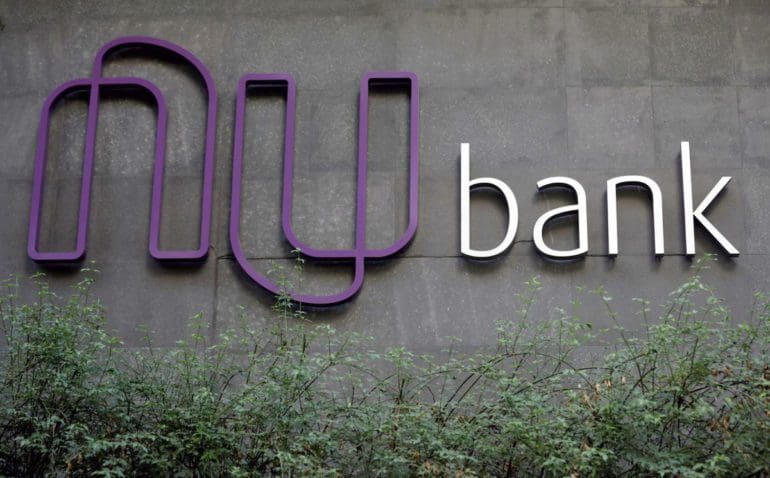In December, Nubank, the flagship of Brazilian fintechs, had reached a milestone valuation for a Latin American startup company.
The digital bank clinched a market capitalization of over $50 billion, a threshold that instantly relegated the country’s decades-old financial institutions to uncomfortable second spots.
But the moment was short-lived.
Shares of Nubank — trading under the ticker NU — have weakened since its initial public offering, losing some $20 billion in market value since it went public.
The stock price had shot up right off the bat in the New York Stock Exchange after its IPO, up to $11.85 on Dec. 10. But it turned out to be a peak going downhill from there.
At a price under $7 as of February, Nubank’s stock has shed some 40% of its market value since then, as an aversion to tech stocks worldwide dragged the online bank down. It has also dipped below its IPO price of $9 apiece by roughly 25%.
Interest rates punishing
“The repricing is mostly related to the increase in U.S. interest rates, which is punishing the stock,” said Rafael Schiozer, a finance professor with Getulio Vargas Foundation in Brazil. “I don’t believe the perception about the bank’s strategy is actually changing.”
Tech-related stocks have been susceptible to rising global interest rates, with the Nasdaq index receding by as much as 9% in January. Future cash flows expected from tech companies are discounted at a more significant rate and hence worth less money today.
According to Schiozer, Nubank is no stranger to these broader market trends and could be subject to further weakening of its stock price.
But the value proposition by the digital bank remains the same: to bank the underbanked.
Despite the nosedive in market value, its clientele remains robust and enticing, with little short of 50 million clients reported. There are just not as many financial technology companies to boast many customers.
Could be one-stop-shop
Nubank, which set up shop in Sao Paulo in 2013, moved from offering a no-fees debit and credit card to a range of products like checking and saving accounts, together with personal loans and life insurance. It could serve as a one-stop-shop for these clients, or it aims to become.
The bank was among the financial entities that benefitted the most from the surge in digital channels in the pandemic. Its success in amassing clients drew interest from top-notch global investors such as Warren Buffett’s Berkshire Hathaway.
“Entrepreneurs have amassed lots of capital from venture funding that makes up for an excellent opportunity for tech companies,” said Jorge Gonzalez Gasque, a partner with private capital firm G2 Momentum Capital.
At a market capitalization of $31 billion, the company can still be considered one of the largest digital banks in the world. Other contesters include U.S. online lender Chime, valued at $25 billion last year.
“Digitization trends are too powerful in Latin America,” said Gasque. “It has a very significant effect on business models as it reduces costs and brings a large number of clients within fingertip reach.”
Profits a question
But even though Nubank’s large clientele opens significant opportunities, some share a concern about its ability to generate profits down the line. At least to the point that it meets investor’s heightened expectations.
The company had not been profitable before going out in an IPO in December, though it claims that it is very close to achieving it.
“Nubank may still experience some below-expected returns because of its business strategy,” Schiozer said. “I don’t see how they are going to make decent cashflows out of their operation so that it justifies its valuation.”
In his view, any effort to signal that the bank will shift towards a “cash flow generation approach” instead of a pure growth model could improve market sentiment.
In the past few years, Nubank has been busy opening new markets outside of Brazil, launching operations in Mexico and Colombia. It has also focused on expanding its suite to cater more products to its clientele. Analysts claim that credit expansion is key to achieving sustainable profits.
Increasing market share
In a recent interview with Reuters, CEO David Velez said that the bank is looking to take advantage of the expected downturn in the Brazilian economy this year to increase market share.
“The macro-environment in Brazil does not help much,” Schiozer said. Experts expect GDP to slow down sharply during 2022, and political uncertainty related to presidential elections could undermine domestic growth prospects by the end of the year.
“Perhaps further diversification outside Brazil could help,” Schiozer said. “The more they look like a global bank, as opposed to a Brazilian bank with some foreign activity, the better…”.


